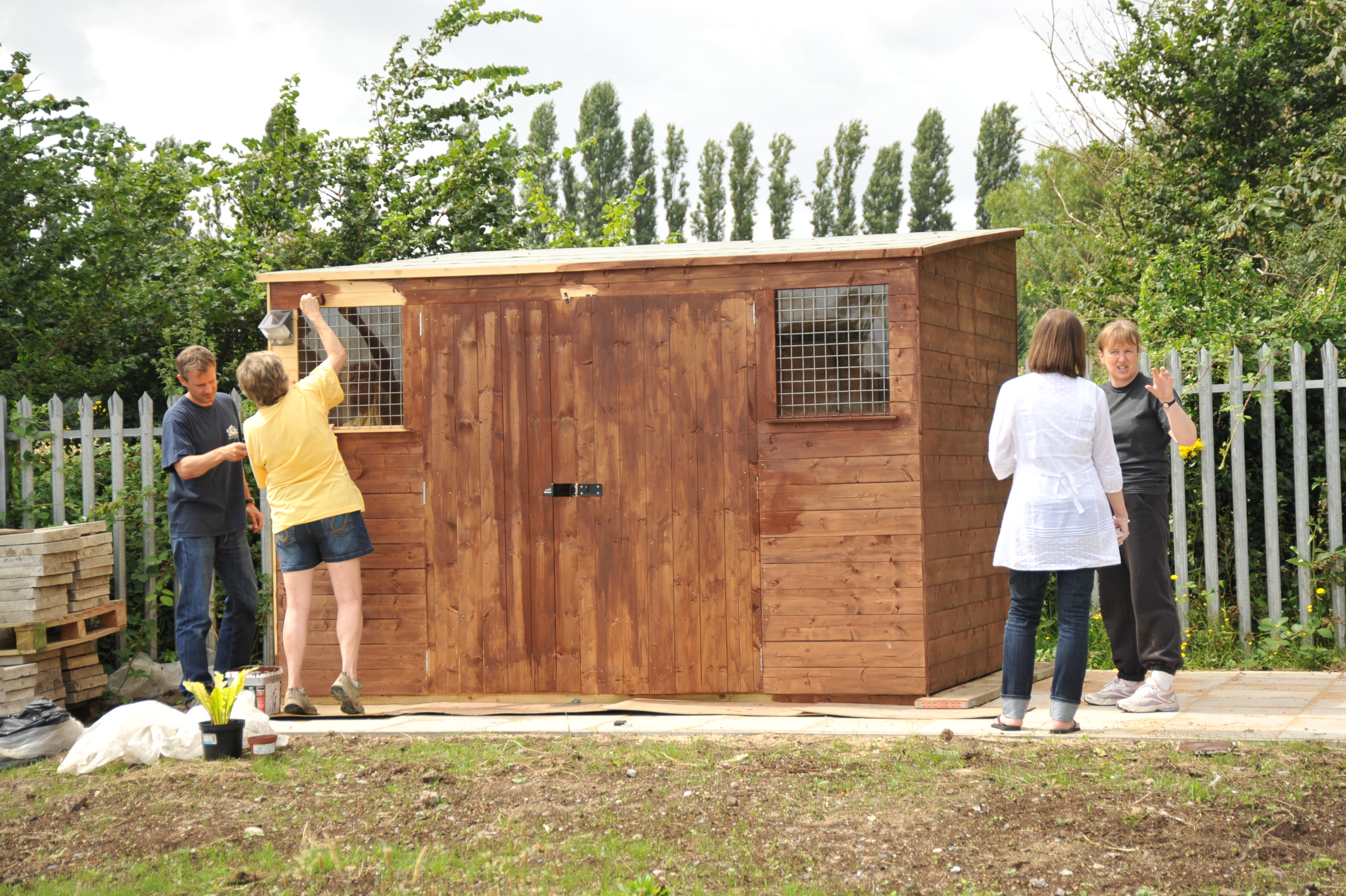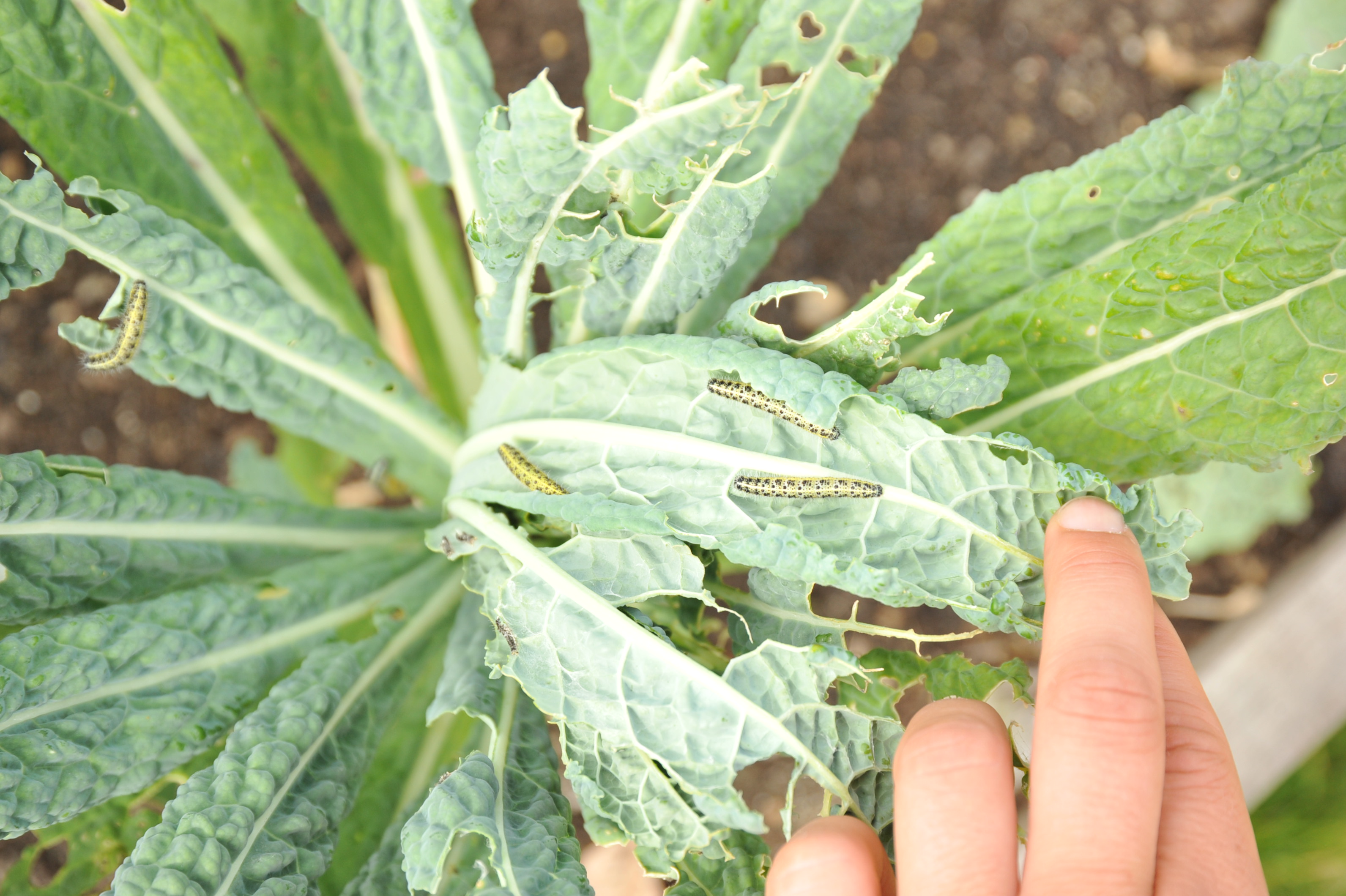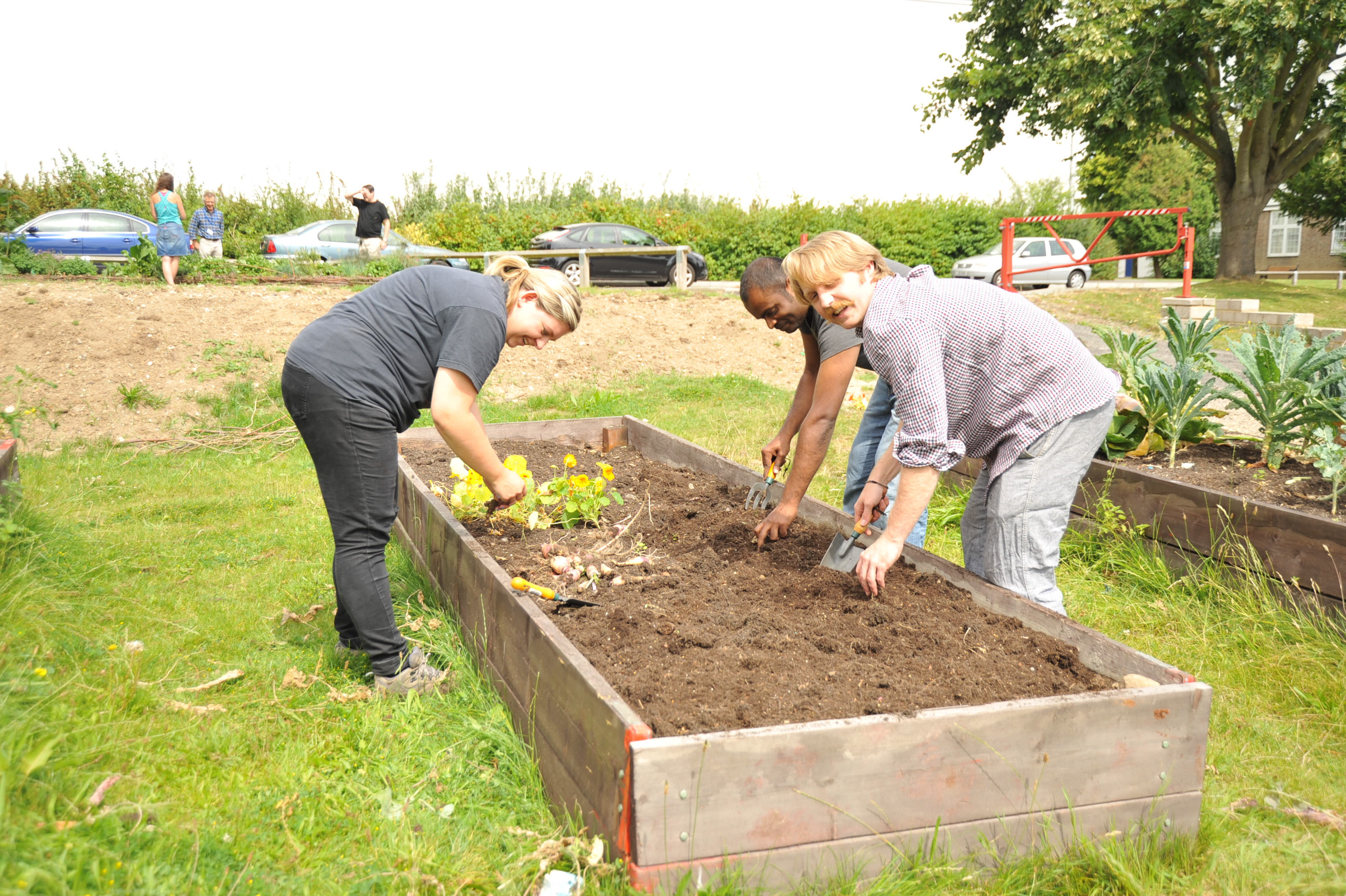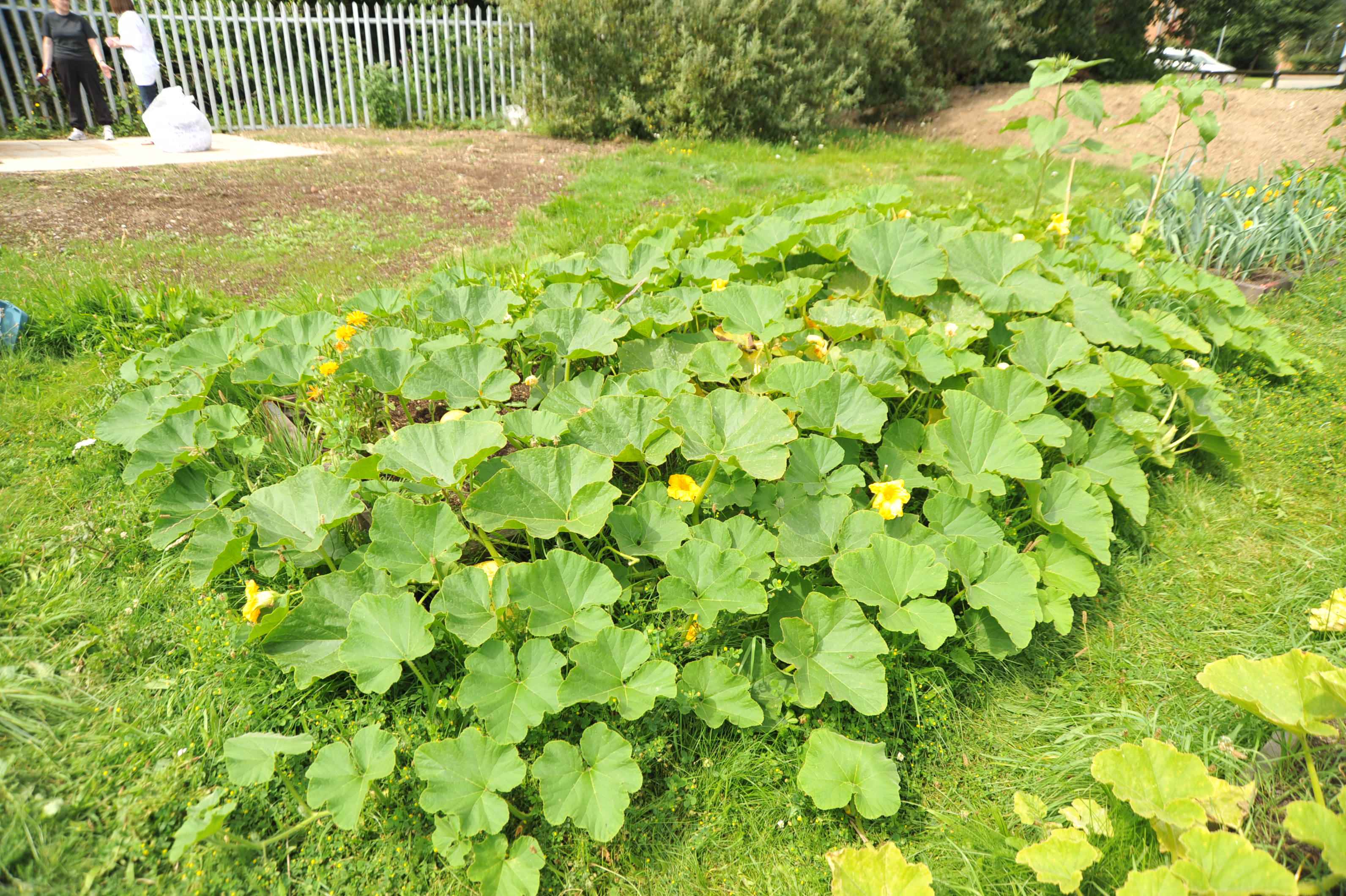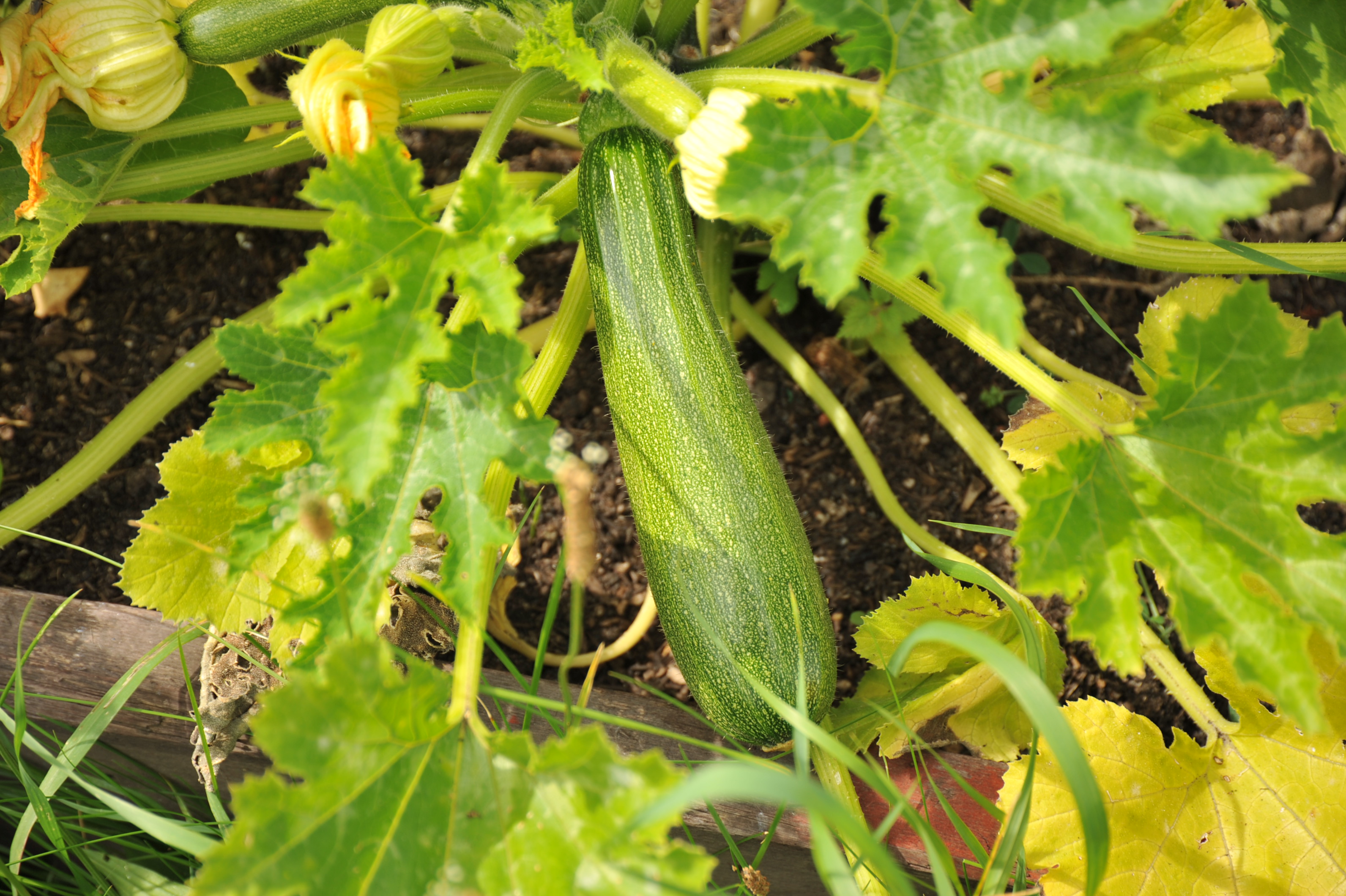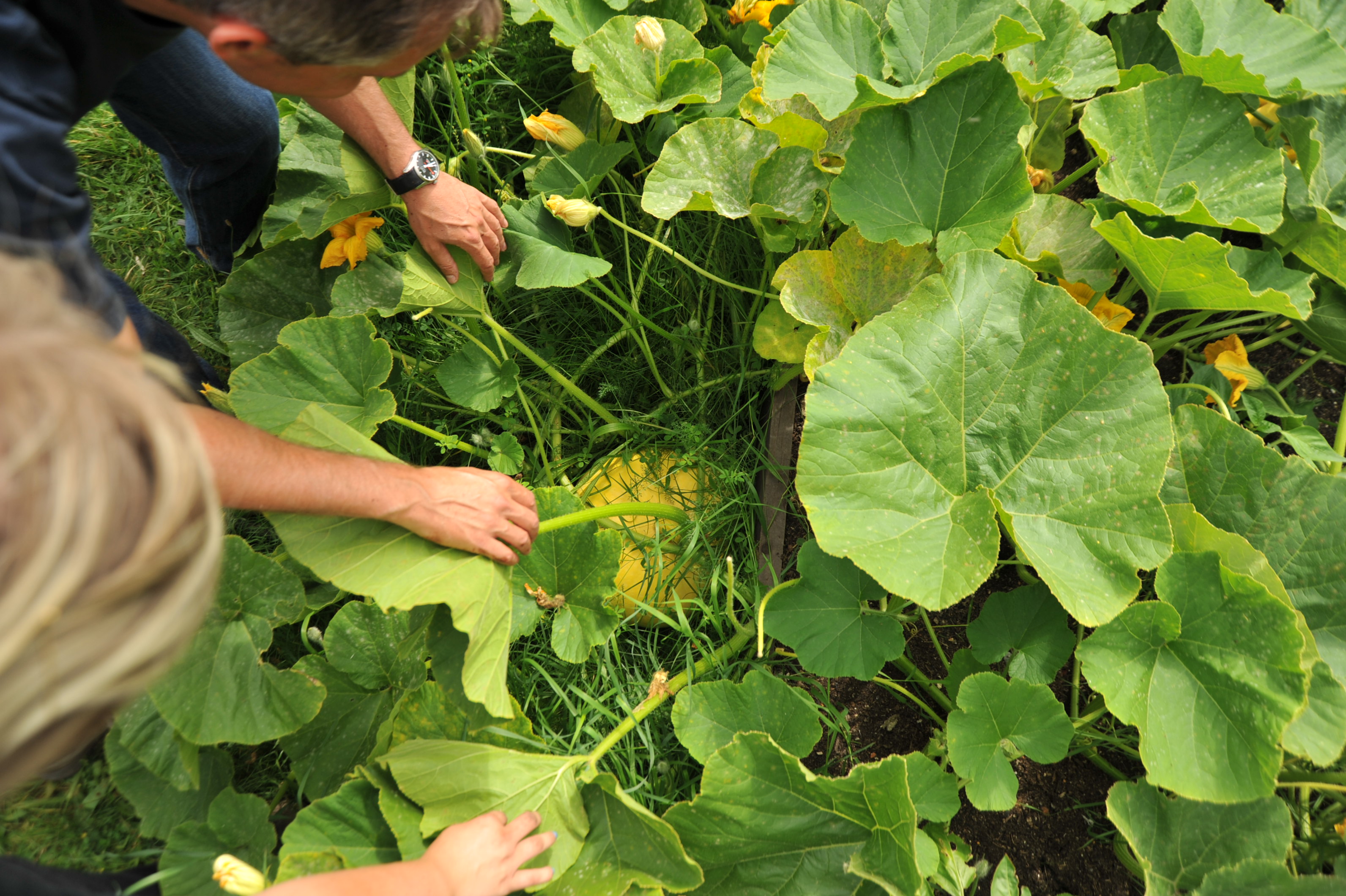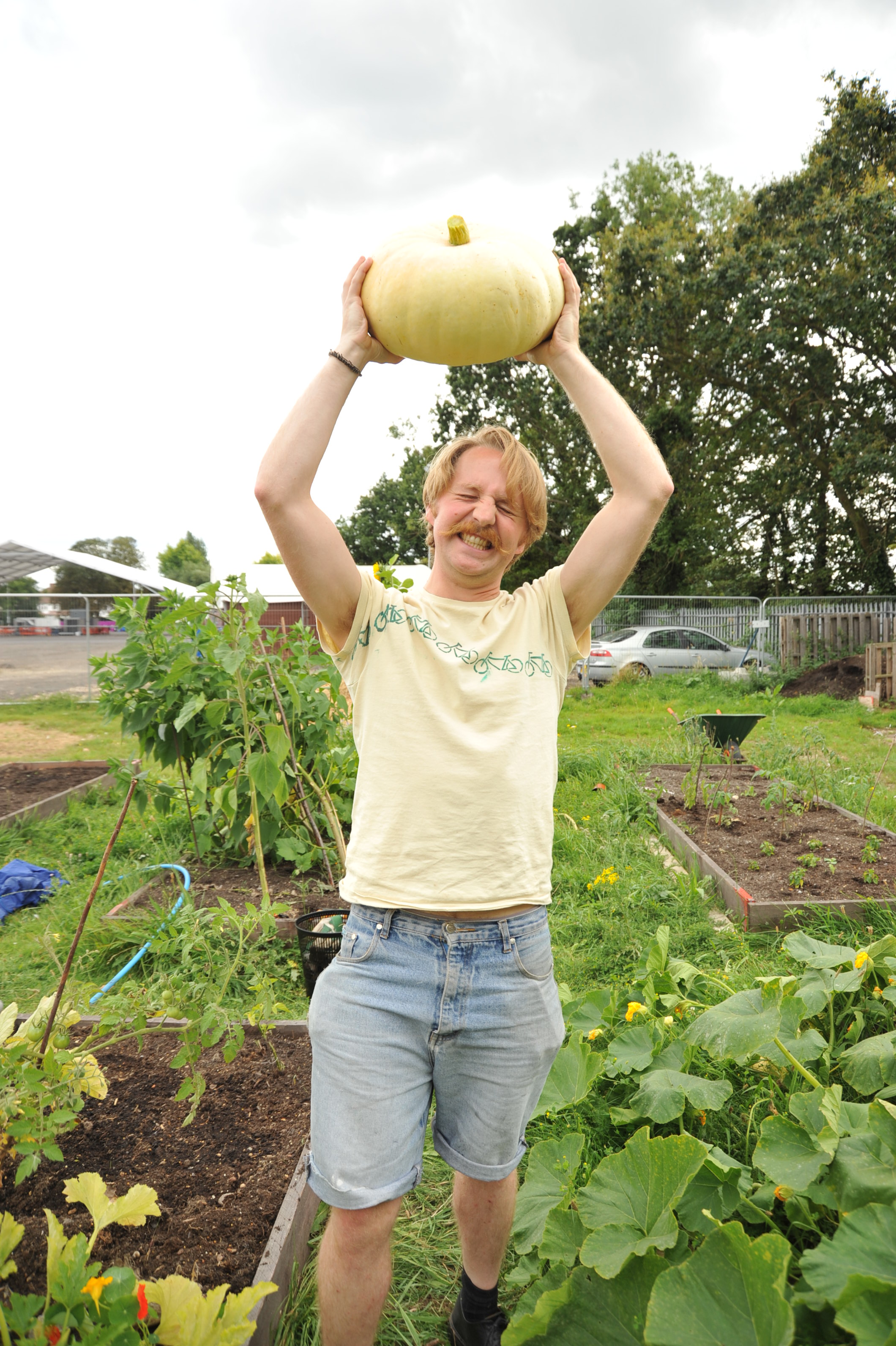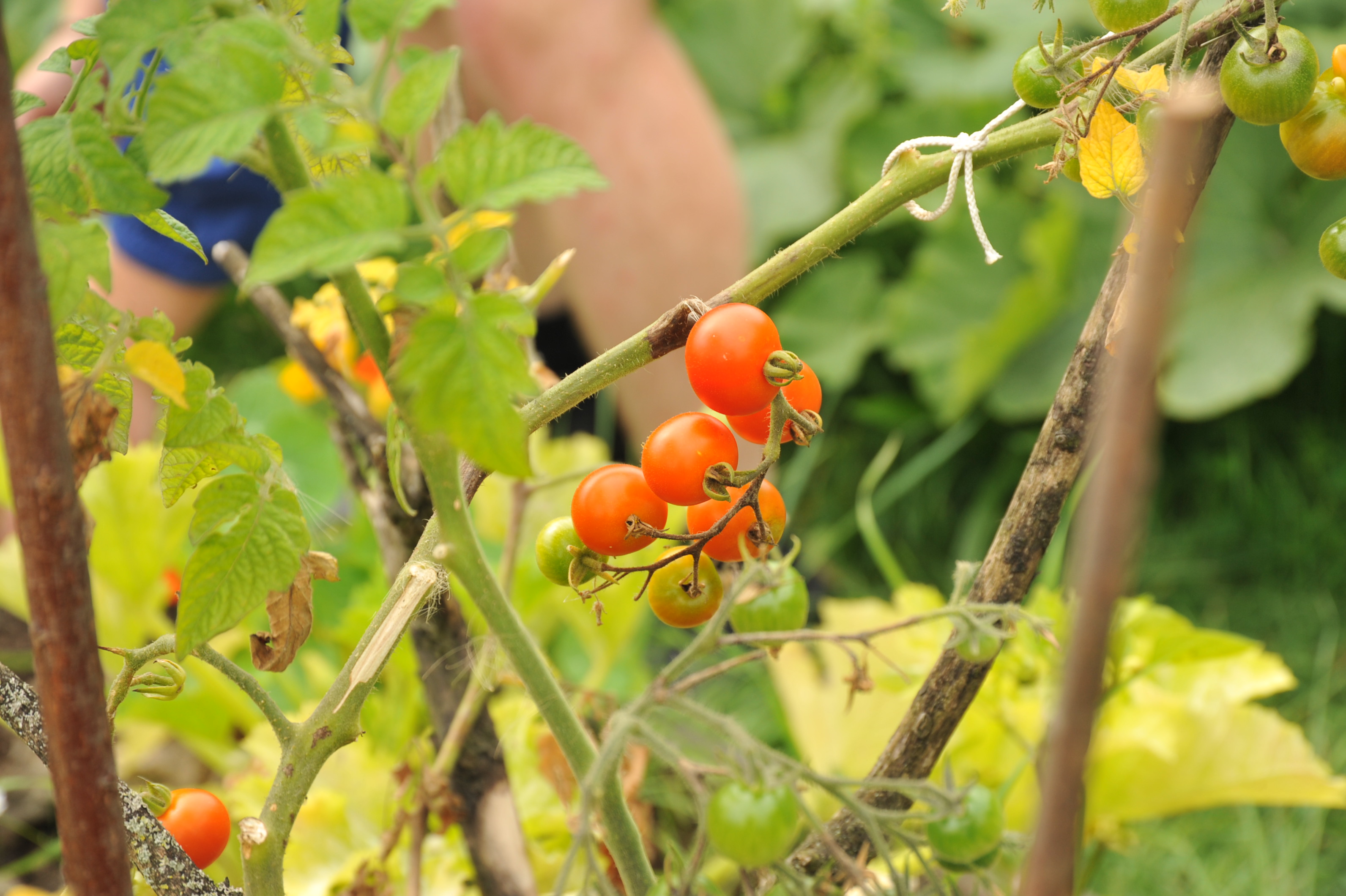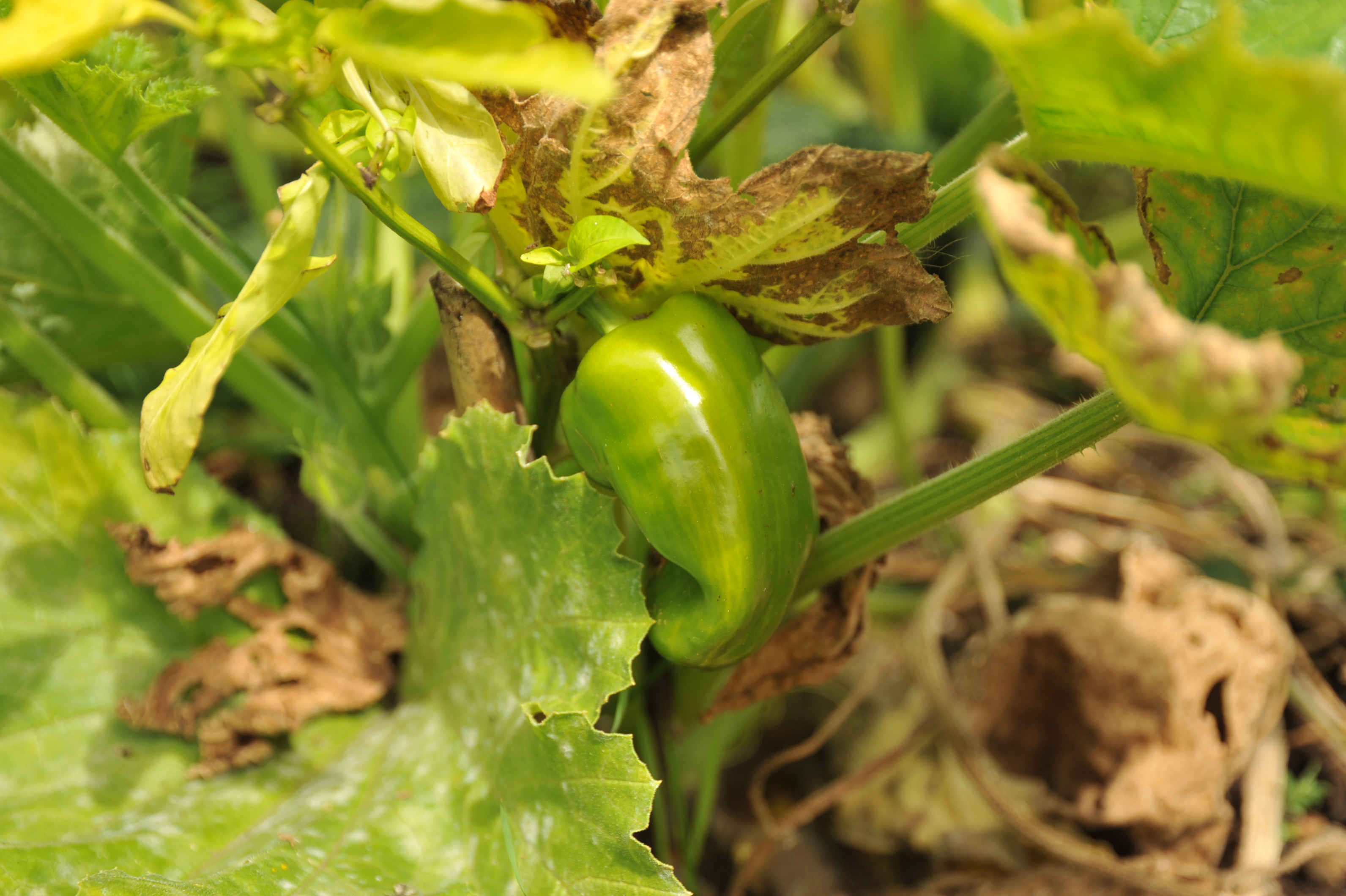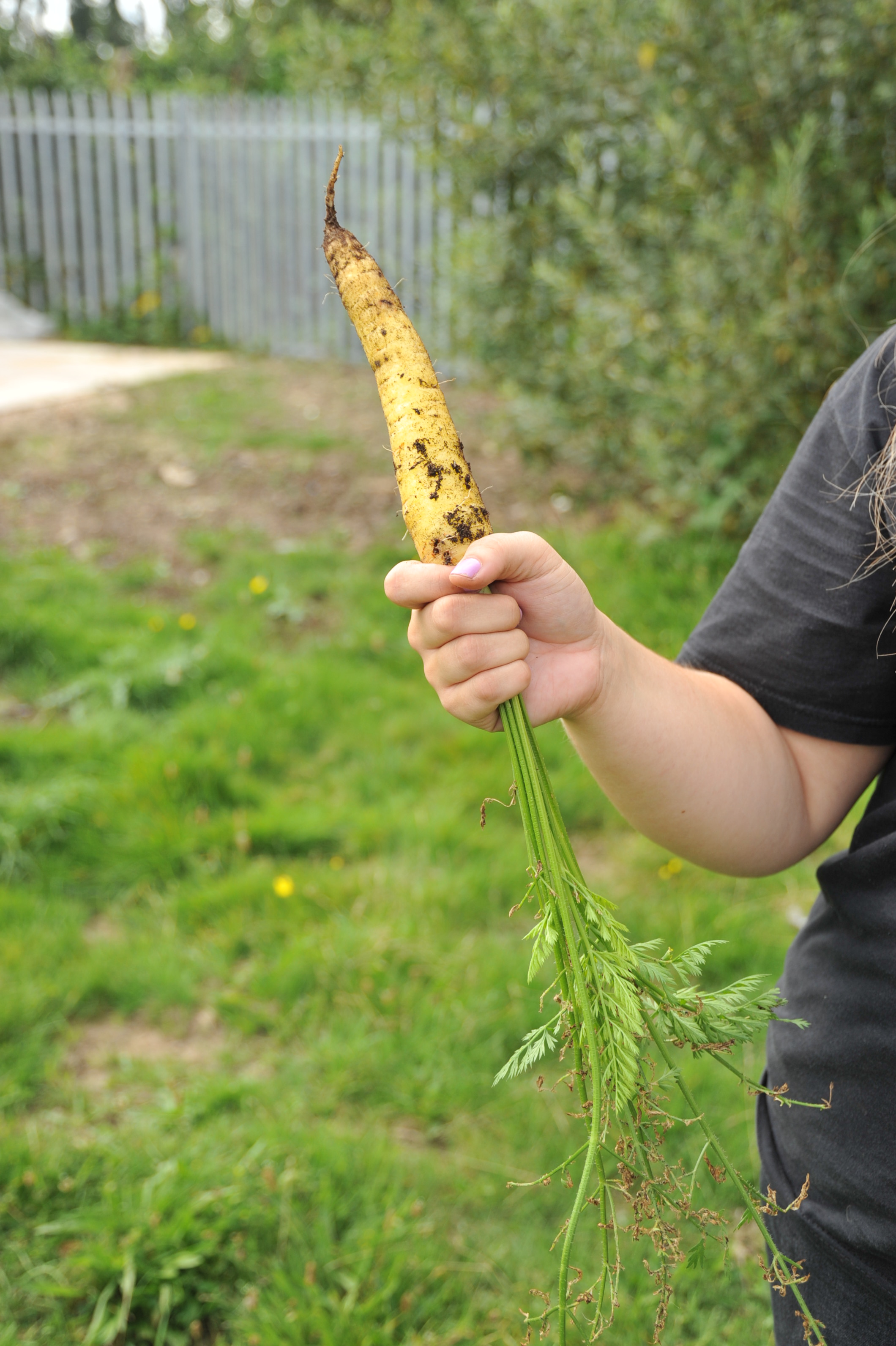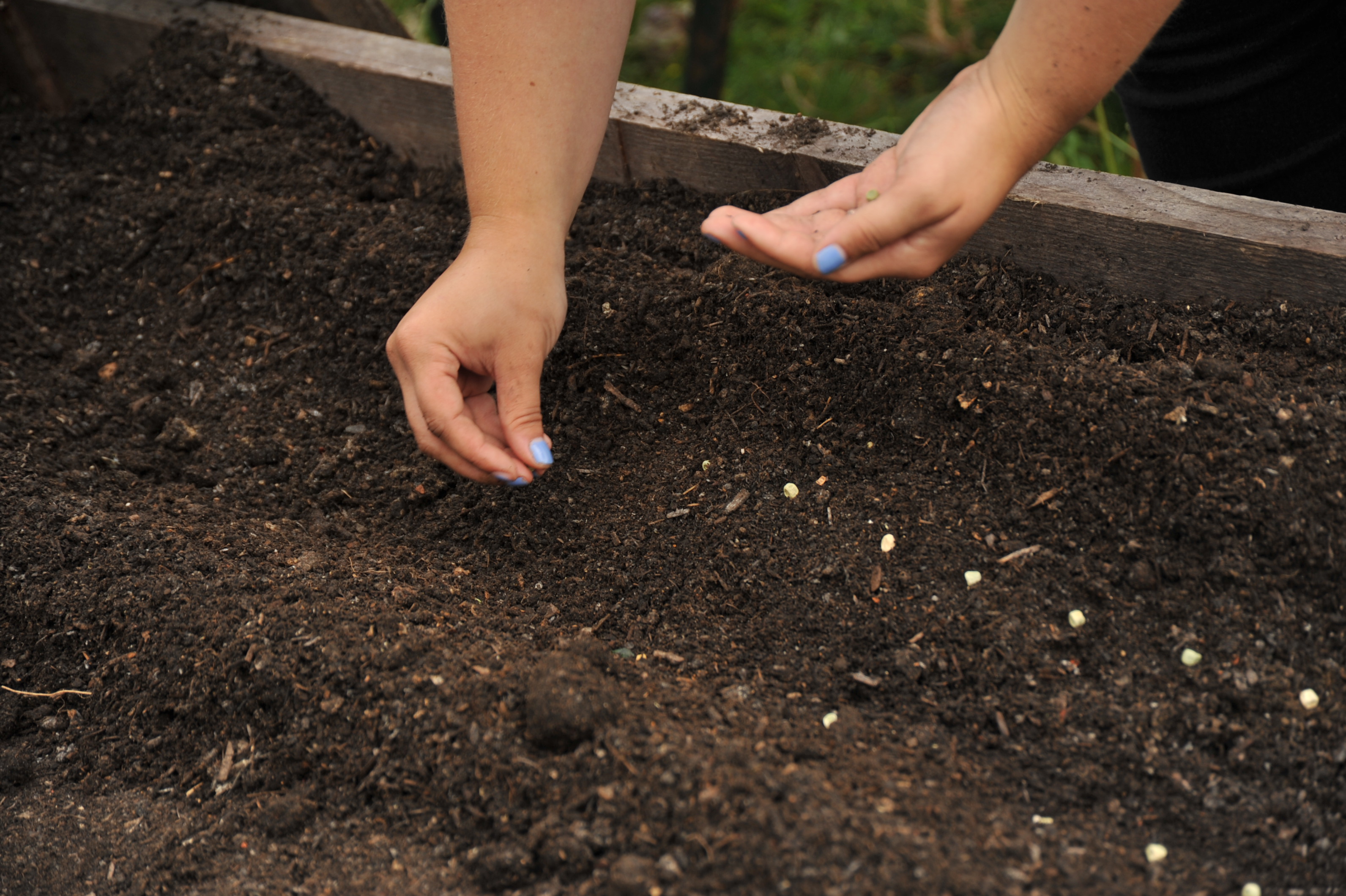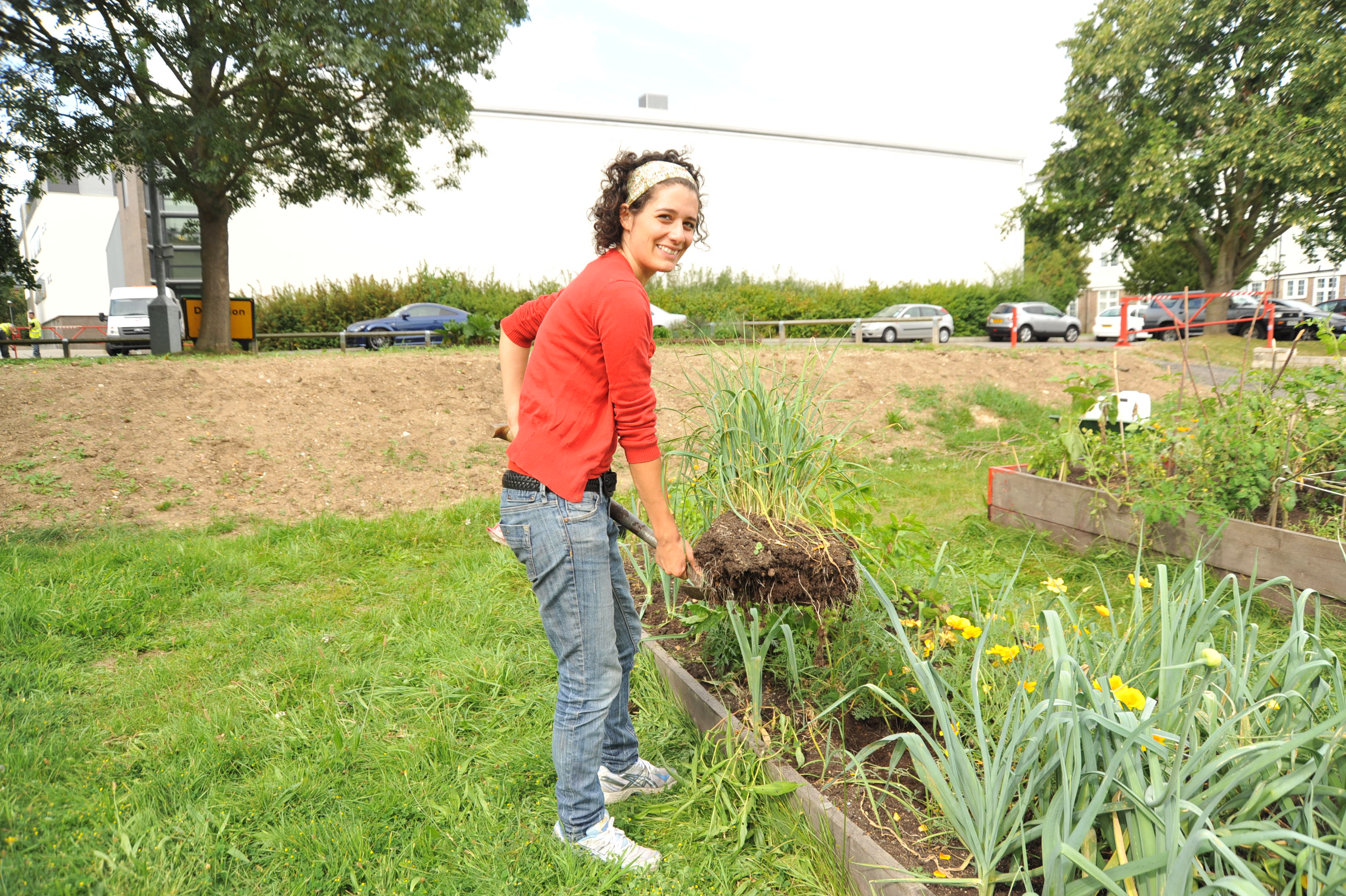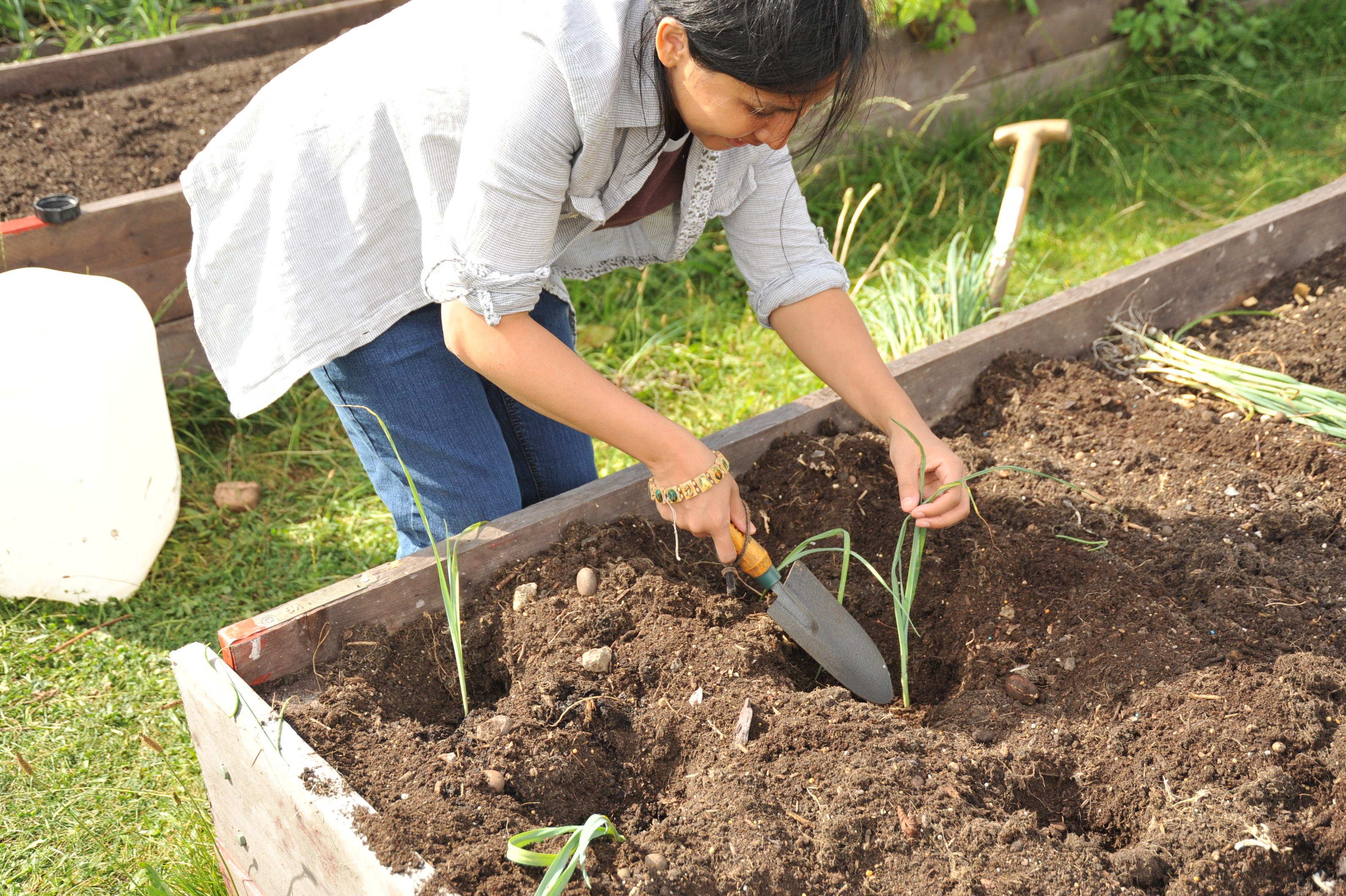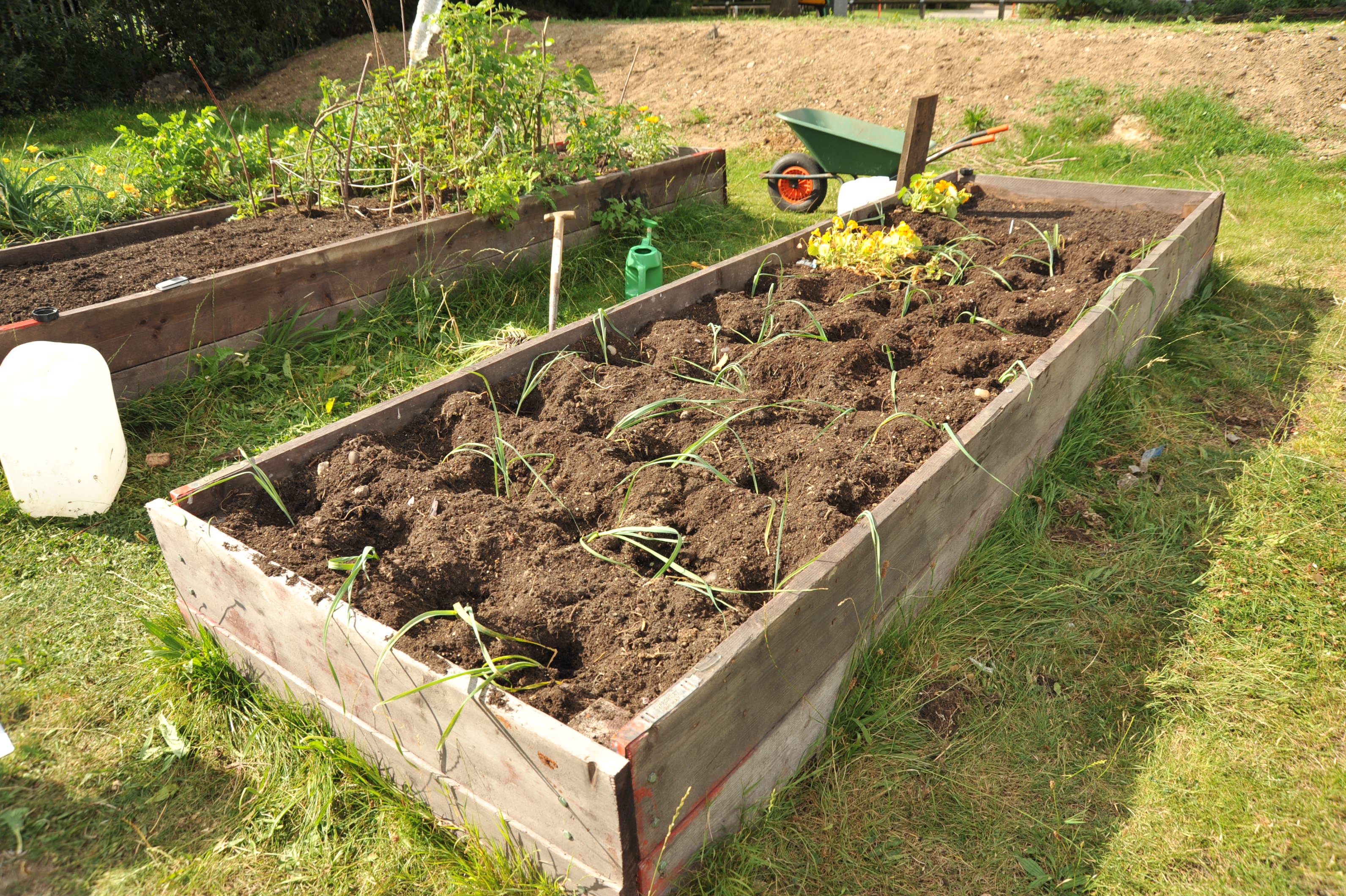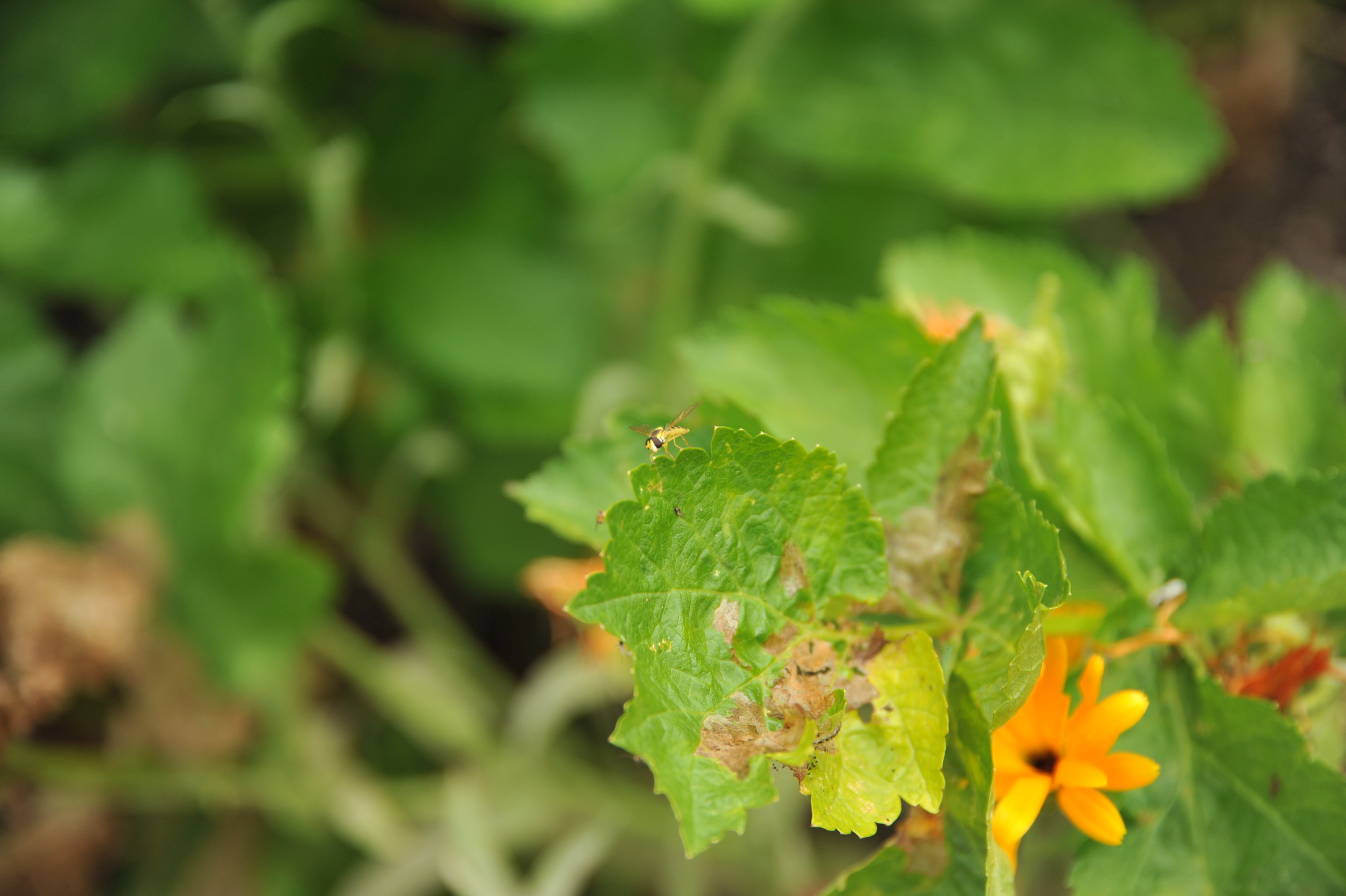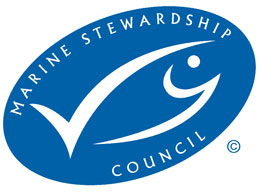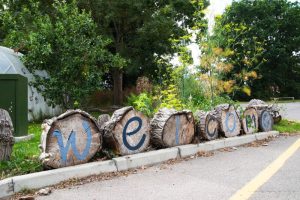The University of Greenwich held its first community event at the Avery Hill Community Garden as part of the Chelsea Fringe festival. Dragos Buharu, a 2nd year Business School student studying BA Business with Marketing was in attendance and here he gives you his perspective of the day.
Chelsea Fringe 2013 –Even the weather couldn’t ruin our fun!!
The Chelsea Fringe Community Event was hosted by the University of Greenwich at the Avery Hill Campus on the 7th of June. As an intern with the sustainability team I was there to find out what makes this event special.
“The Fringe is all about harnessing and spreading some of the excitement and energy that fizzes around gardens and gardening. The idea is to give people the freedom and opportunity to express themselves through the medium of plants and gardens, to open up possibilities and to allow full participation.” Chelsea Fringe.
The event at Avery Hill in keeping with the Fringe’s ethos aimed to celebrate the spirit of community, mixing the unique excitement that can be found around a beautiful edible garden.
Dragos’ Chelsea Diary
After having turned up early to help out with last minute touches, I accompanied James Hallybone from Roundfield and some of the University’s Sustainability Champions on a tour of the forest garden.
The tour was interesting, educational and very surprising. At first, when you look around you just see tiny trees but when you learn about what they are the effect is jaw dropping. At one point we came across what looked to me like just a ball of twigs looking slightly out of place, then it was introduced as pomegranate tree! The same experience followed when faced with almonds and bamboo. All I could think was: “Seriously?!” while looking left and right for some panda to jump out at us!
Having been ‘very’ tired after my exertions we went on to enjoy the fresh foods that Greenwich Community Food Coop and the University had to offer. Let me add there was some very good and refreshing wine present. Greenwich Community Food Co-op (GCFC) was established in 2002 as a co-operative run by the community for the community and started life on the Ferrier Estate, Kidbrooke.
Paul Harvey from Sodexo who cater for the University at the Avery Hill Southwood Site was pleased to be part of the event.
“Sodexo are very committed to sustainable food offers & are always looking at ways of taking this forward.”


During all of this excitement there was a living wall being constructed by students from the School of Architecture, Design and Construction only feet away, and yes there was a lot of green in there.
Afterwards I decided to check out the bees in the observation hive, brought in by our resident beekeepers from the Ruxley beekeeping group, Colin and Patrick. The Queen was easy to spot from the yellow mark put on her back, and it was clear to see that she was bigger than the rest!
As the event kept going we were joined 2 groups of kids from the Crafty Wizard’s Nursery. They went on a mini beast hunt, accompanied by our very own Emily Mason from the Sustainability Team. The children were very cool and I even got a thumbs up from one of tiniest members of the group. When discovering an earwig and asked why they are called as such, the majority decided: “Because they wear wigs”. Sensible enough answer, right? They also did some planting of their own.
These are only some of the activities that went on, throughout the day there was:
CompetitionsPlanting Young beekeepers from Corelli’s School
Seed and Plant Swapping
Orchard tours
Workshops


While approaching another person I was thinking: “Hmmmm, she looks like she’s having a good time”. Apparently she is pro sustainability and her parents have had an allotment for about 40 years. She was also surprised by the diversity present in the forest garden and believes it to be a very good idea. She was also very impressed by the bees and growth present in general.
The British weather was as unpredictable as ever and after a heat wave all week we encountered a rather heavy downpour but this did not stop us for sure. And what is a bit of gardening without a bit of rain?
Let’s hope the garden continues to grow and more people get to benefit from this project though volunteering and purchasing the fresh produce. It is also a lovely place to hang out as a student and you never know when there might be free food up for grabs!
For more information about the event of the garden in general please contact Emily Mason at sustainability@gre.ac.uk














